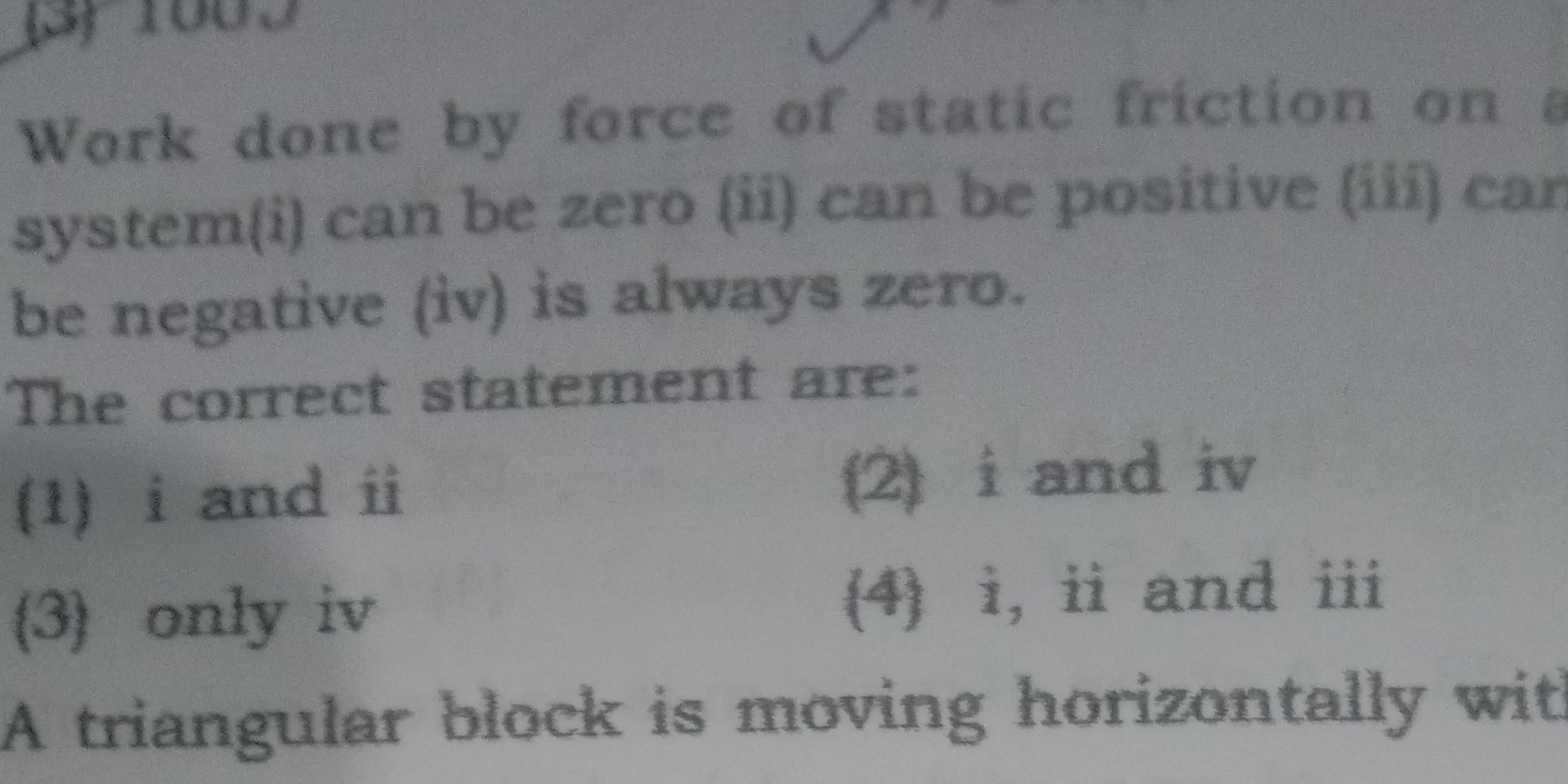Work done by the force of static friction on a system can be zero; can be positive; can be negative; is always zero. The correct statements are: (1) i and ii (2) i and iv (3) only... Work done by the force of static friction on a system can be zero; can be positive; can be negative; is always zero. The correct statements are: (1) i and ii (2) i and iv (3) only iv (4) i, ii and iii.

Understand the Problem
The question is asking about the work done by static friction on a system, with various statements regarding its possible outcomes. It seems to require determining which statements about the work done by static friction are correct based on the provided options.
Answer
Option (4) i, ii, and iii.
The final answer is option (4) i, ii, and iii.
Answer for screen readers
The final answer is option (4) i, ii, and iii.
More Information
Static friction can perform work in scenarios such as a block on a conveyor belt, where the entire system moves together despite the lack of relative motion between surfaces in contact. This unique aspect allows static friction to do non-zero work.
Tips
Common mistakes include assuming static friction always does zero work due to its usual role in preventing motion rather than contributing to it.
Sources
AI-generated content may contain errors. Please verify critical information